Photos of Pluto and Its Moons
Pluto and Charon Shown in Natural Color
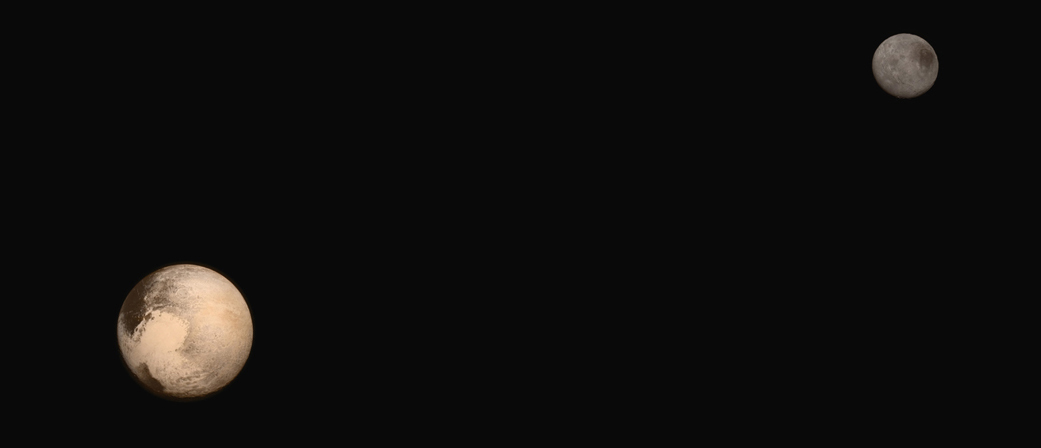
Pluto and Charon appear in a composite of natural-color images obtained by New Horizons space probe on July 13 and 14, 2015. Image released July 24, 2015.
Pluto's Hazy Atmosphere
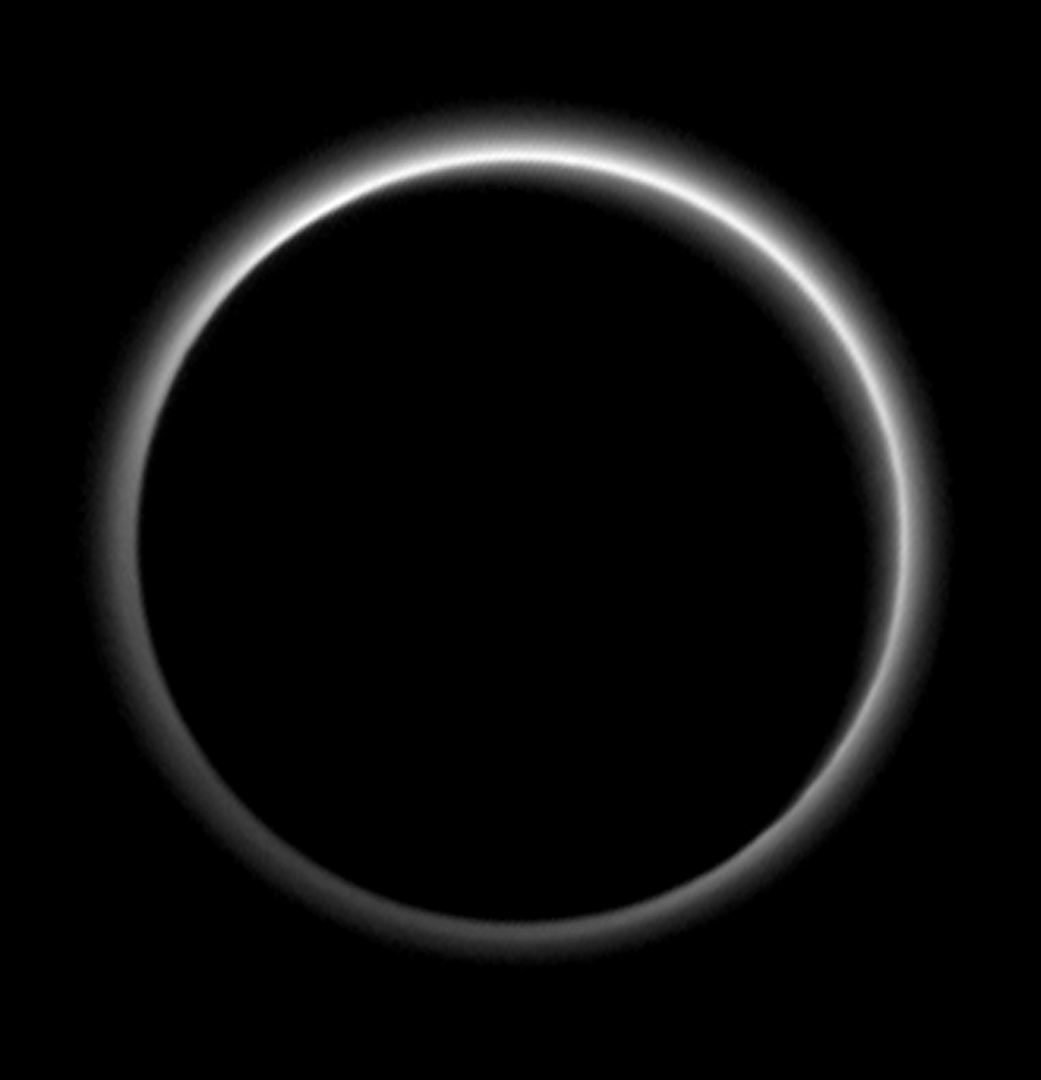
Pluto’s atmosphere around the planet in this image taken by NASA’s New Horizons spacecraft on July 15, 2015, from a distance of about 1.25 million miles (2 million kilometers). Image released July 24, 2015.
Pluto's Heart in False Color
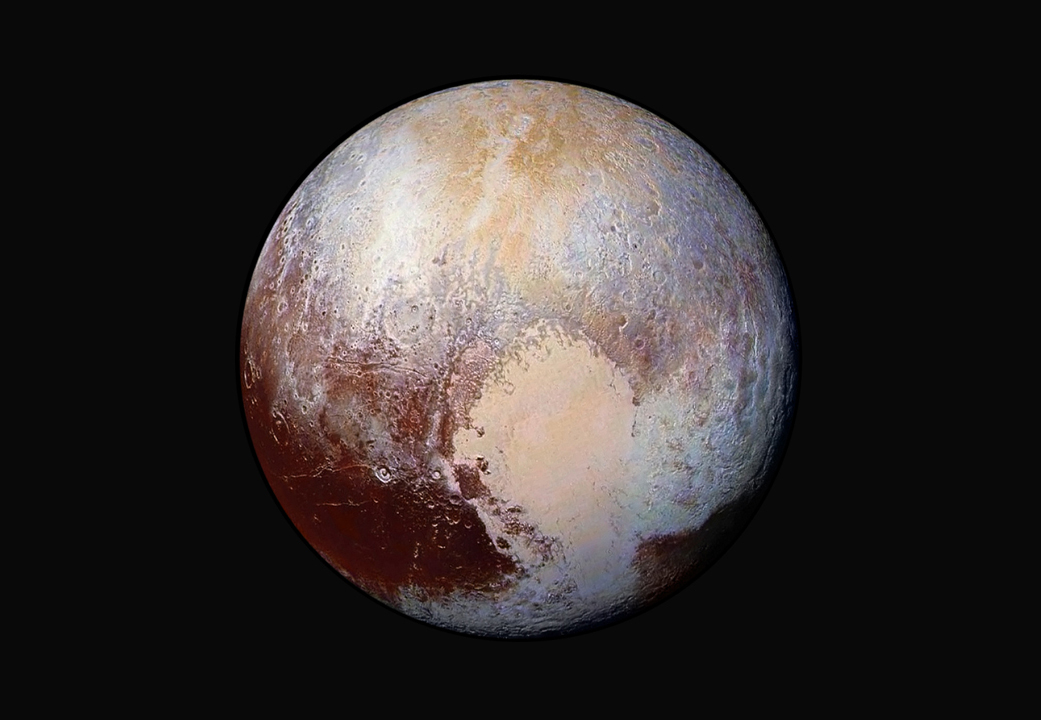
Pluto's frozen 'heart' yields some icy details in this false-color view of the dwarf planet released by NASA on July 23, 2015. The image was taken by NASA's New Horizons spacecraft. Read the full story here.
Frozen Plains of Pluto
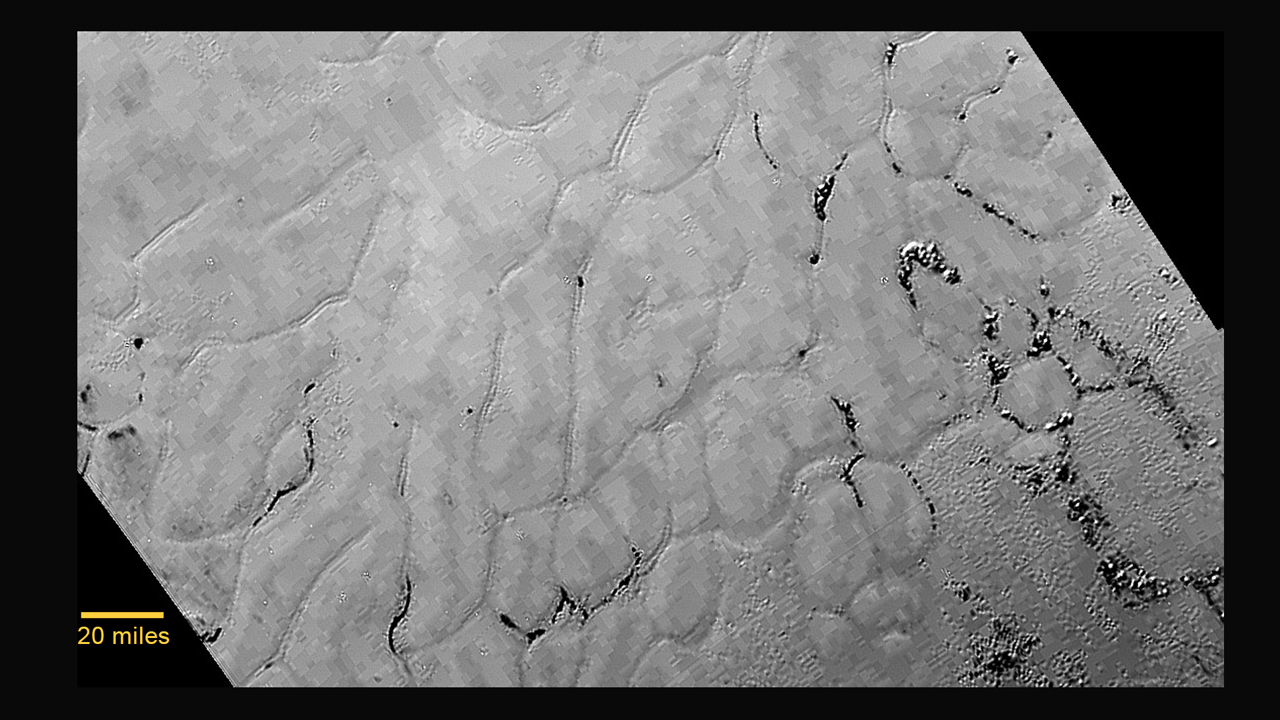
NASA's New Horizons space probe obtained this image of the frozen plains of Pluto, released during a press briefing held on July 17, 2015, at NASA Headquarters in Washington, DC. [See our complete coverage.]
Sputnik Planum and Norgay Montes on Pluto
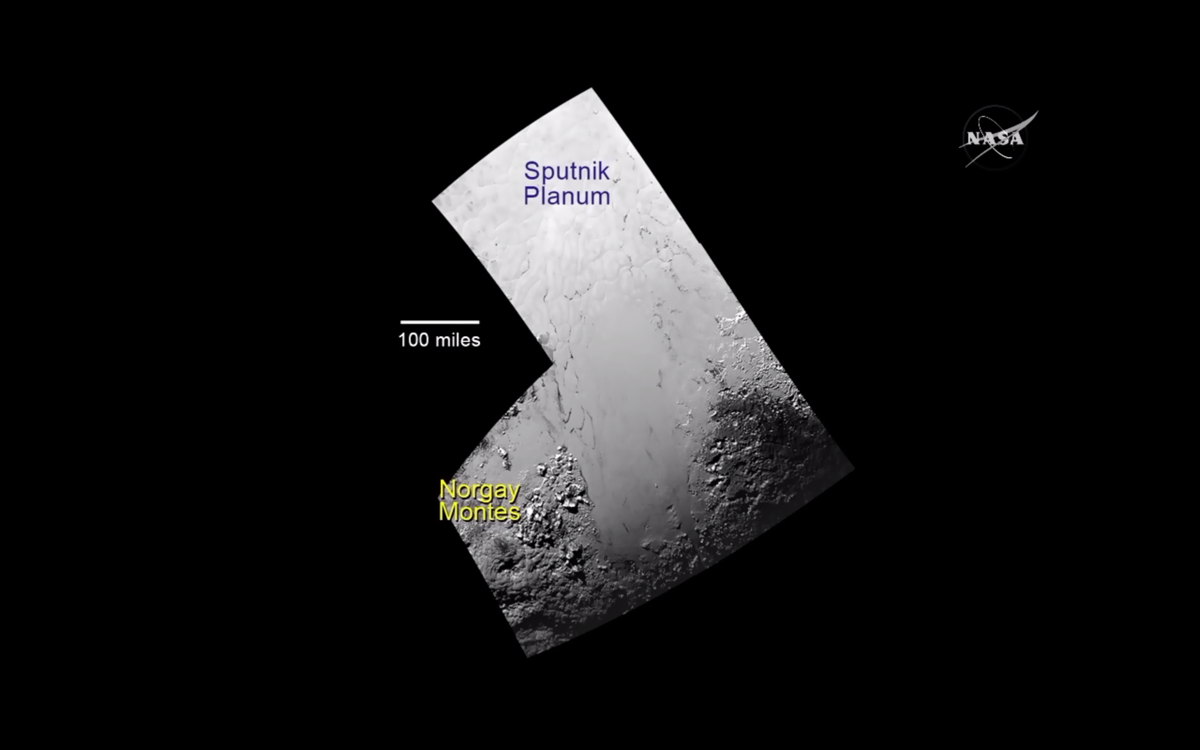
NASA's New Horizons space probe obtained this image of the Sputnik Planum and Norgay Montes regions of Pluto, released during a press briefing held on July 17, 2015, at NASA Headquarters in Washington, DC. [See our complete coverage.]
First Well-Resolved Image of Nix
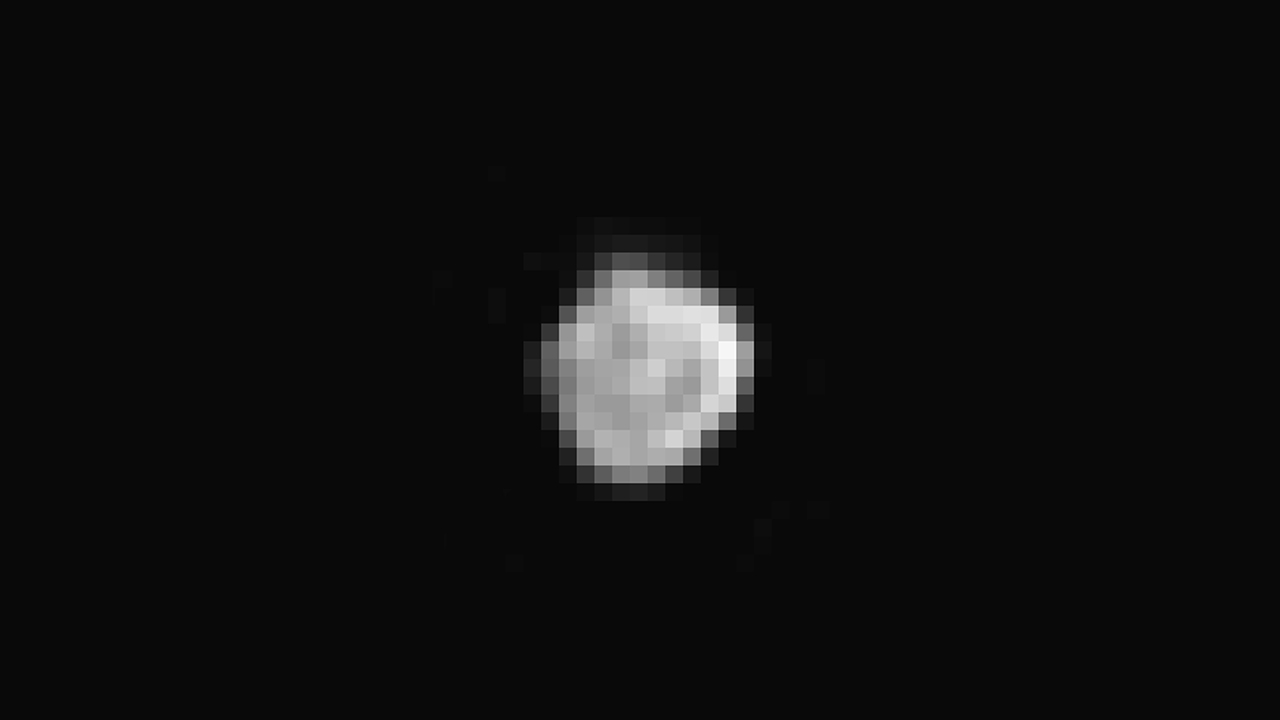
NASA's New Horizons space probe obtained the first well-resolved image of Nix, Pluto's moon, released during a press briefing held on July 17, 2015, at NASA Headquarters in Washington, DC. [See our complete coverage.]
Frozen Carbon Monoxide on Pluto
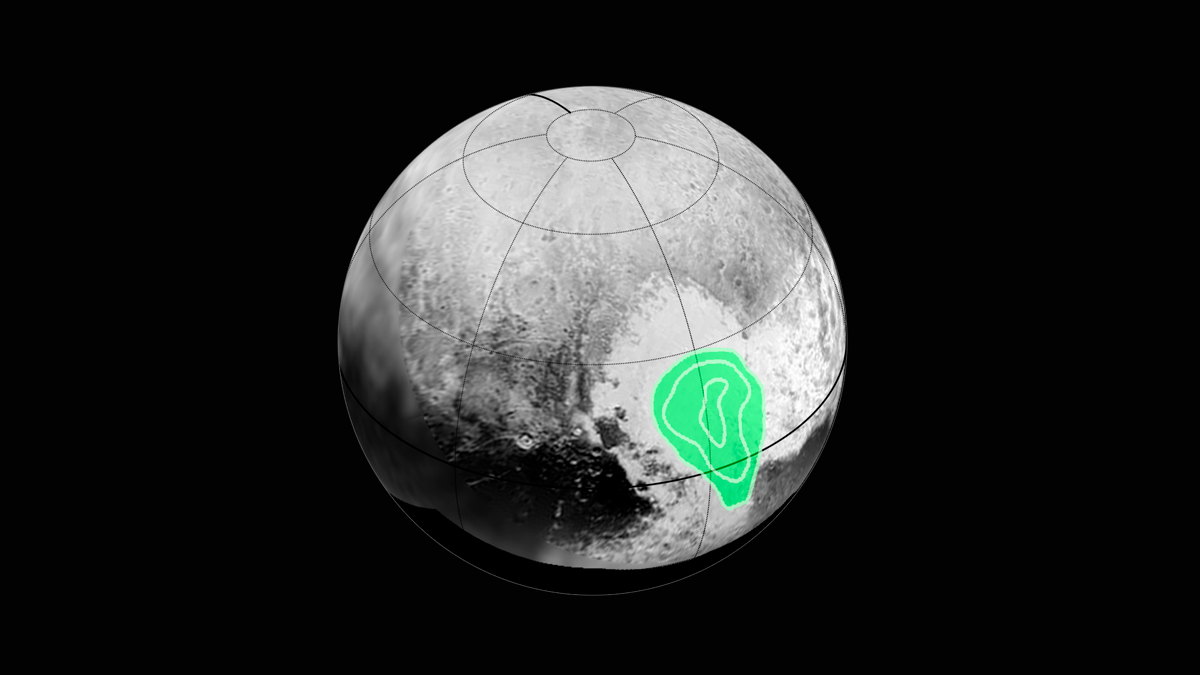
New Horizons’ Ralph instrument revealed evidence of carbon monoxide ice on Pluto, in the western part of the region known presently as Tombaugh Regio (Tombaugh Region), the highly visible "heart of Pluto." The contours overlain on the image show that the concentration of frozen carbon monoxide increases towards the center of the “bull’s eye.” The data was acquired by the spacecraft on July 14, 2015, and transmitted to Earth on July 16. [See our complete coverage.]
Get the Space.com Newsletter
Breaking space news, the latest updates on rocket launches, skywatching events and more!
Pluto's Escaping Atmosphere
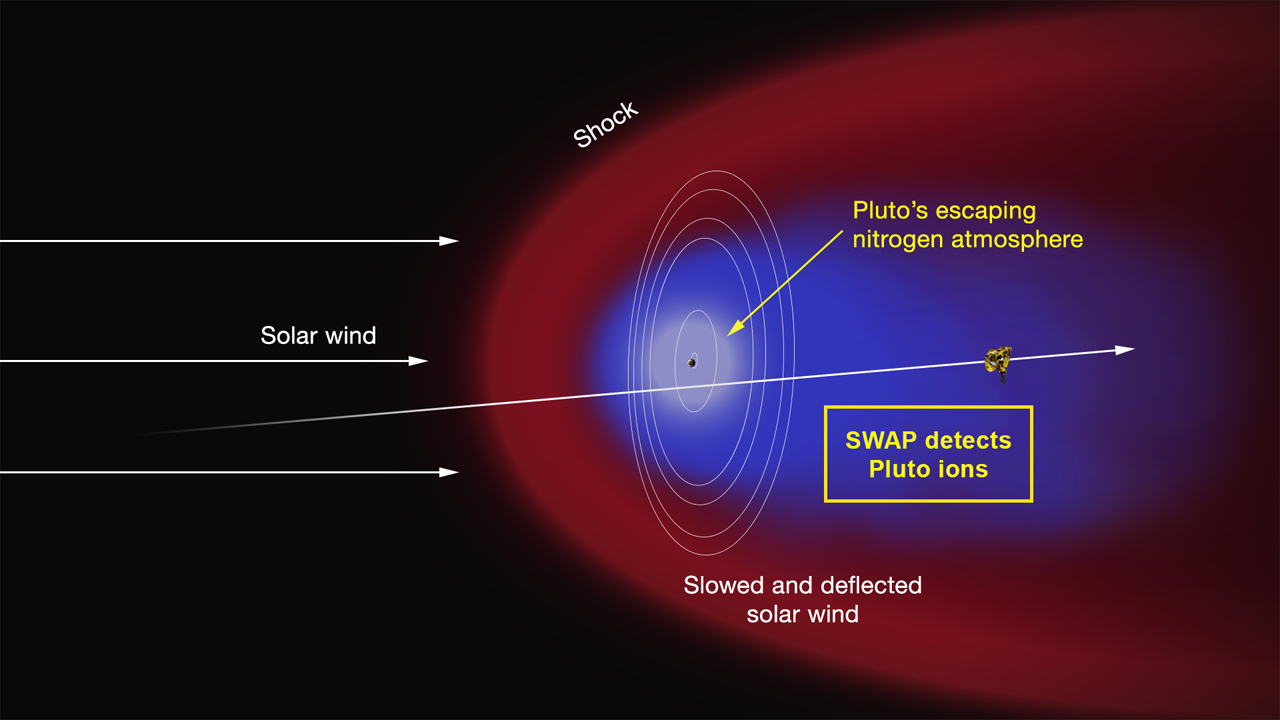
This diagram depicts the interaction of the solar wind (the supersonic outflow of electrically charged particles from the sun) with Pluto’s mainly nitrogen atmosphere. Some of the atmosphere's molecules possess enough energy to overcome Pluto’s weak gravity and escape into space. Image released July 17, 2015. [See our complete coverage.]
Charon Close-Up, July 16, 2015
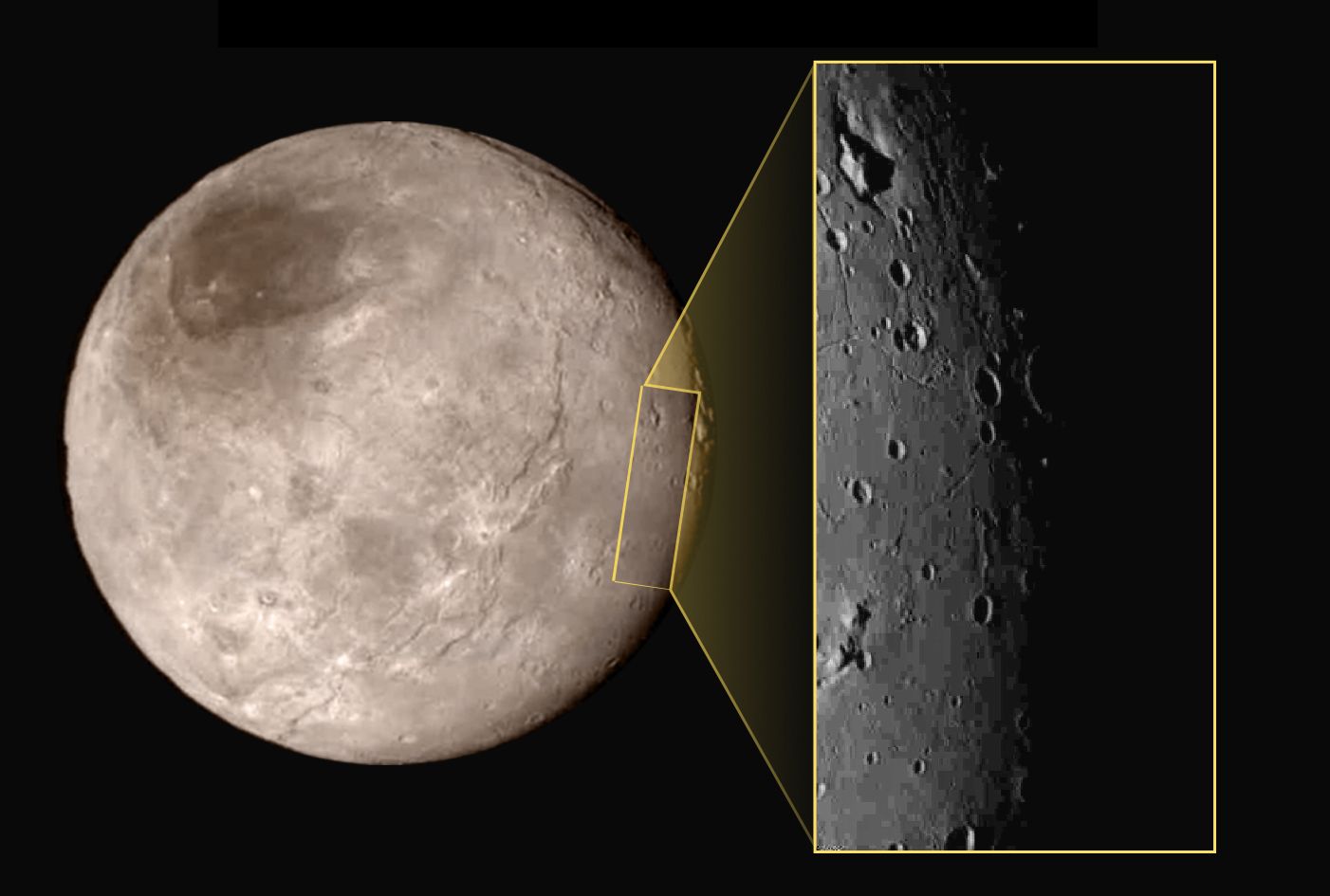
NASA's New Horizons space probe found a strange feature on Pluto's moon, Charon, a depression with a peak in the middle. The image was taken on July 14, 2015 at a range of 49,000 miles (79,000 km). [Read full story.]
New Horizons Closest View of Pluto
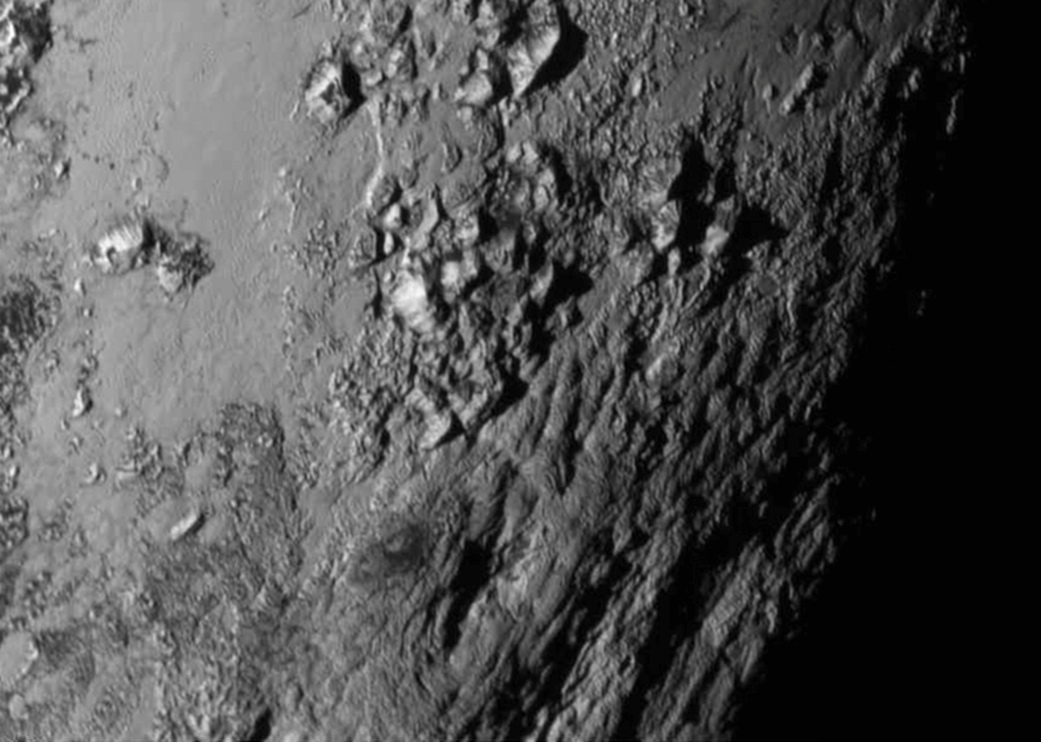
New Horizons space probe provides the highest resolution image of Pluto ever seen as presented in a NASA press conference on July 15, 2015, at the Johns Hopkins University Applied Physics Laboratory, Laurel, Maryland. This region near Pluto’s equator surprisingly contains a range of youthful mountains rising to heights of 11,000 feet (3,500 m) above the surface.
Join our Space Forums to keep talking space on the latest missions, night sky and more! And if you have a news tip, correction or comment, let us know at: community@space.com.

Space.com is the premier source of space exploration, innovation and astronomy news, chronicling (and celebrating) humanity's ongoing expansion across the final frontier. Originally founded in 1999, Space.com is, and always has been, the passion of writers and editors who are space fans and also trained journalists. Our current news team consists of Editor-in-Chief Tariq Malik; Editor Hanneke Weitering, Senior Space Writer Mike Wall; Senior Writer Meghan Bartels; Senior Writer Chelsea Gohd, Senior Writer Tereza Pultarova and Staff Writer Alexander Cox, focusing on e-commerce. Senior Producer Steve Spaleta oversees our space videos, with Diana Whitcroft as our Social Media Editor.









